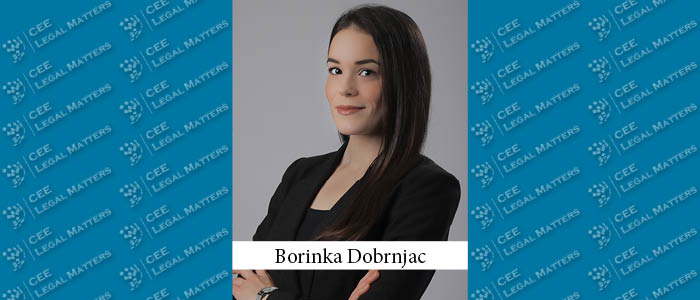SOG in cooperation with Kinstellar has advised Strickland Metals on its acquisition of Zlatna Reka Resources Beograd-Vracar. MPartners Legal reportedly advised the sellers.
Dissecting CEE Disputes
ACI Partners Managing Partner Igor Odobescu, Nagy es Trocsanyi Founding Partner Peter Nagy, Kinstellar Partner Radovan Grbovic, Law Office Vujacic Partner Sasa Vujacic, and Tuca Zbarcea & Asociatii Partner Robert Rosu discuss recent litigation trends across CEE, driven by the impact of economic shifts and regulatory changes in their jurisdictions.
The Corner Office: Essential Checklist for Partner Departures
In The Corner Office, we ask Managing Partners at law firms across Central and Eastern Europe about their backgrounds, strategies, and responsibilities. As partner departures are inherent to the workings of any law firm, and likely demand clear strategies for navigating, this time around we asked: What are the three most important items on your checklist when a Partner leaves your firm?
Serbia: Navigating Capital Markets – Overcoming Challenges while Striving Toward Rebirth
The economic sector of the Republic of Serbia, including the capital market, offers a telling reflection of the global market’s challenges and some regional specifics. Despite periods of uncertainty and stagnation, Serbia’s capital market maintains signs of vitality and potential for growth.
Artificial Intelligence and Patent Law
Amidst the adoption of the Artificial Intelligence Act by the European Union Council, as the world’s first legislation setting a global standard for regulating artificial intelligence (“AI“), we are entering into the still unregulated territory of the relationship between patent law and AI.
Use of Video Surveillance Footage as Evidence in Disciplinary Proceedings
In this article, we address a common question in practice – under which conditions can an employer use video surveillance footage in disciplinary proceedings against an employee?
Harrisons Advises EBRD on Three Financing Facilities for Banca Intesa Beograd
Harrisons has advised EBRD on three financing facilities with Banca Intesa Beograd totaling EUR 72 million.
Legal Regulation of Artificial Intelligence: European AI Act
One of the most current news this year, which turned out to be equally interesting to both legal experts and IT industry professionals, was the adoption of the European Union’s Artificial Intelligence Act (“AI Act“) as the first regulatory framework regarding artificial intelligence (“AI“) adopted at the EU level. The aim of the AI Act is to bring the European Union (“EU“) to the forefront of the artificial intelligence race, while simultaneously ensuring the protection of human rights, the environment, the rule of law, and democracy.
CMS Advises Rail Cargo Group on Joint Venture with Transfera
CMS has advised Austria-based Rail Cargo Group on creating a joint venture with Serbia-based Transfera.
Karanovic & Partners and LEF Advise on BIG CEE's Acquisition of Promenada Novi Sad from NE Property
Karanovic & Partners has advised BIG CEE on its acquisition of Promenada Novi Sad from NE Property. LEF Attorneys advised NE Property.
Non-Compete Clause in Employment Relationships: Can the Validity of the Clause be Terminated Unilaterally by the Employer?
In the practice of the Court of Appeal in Belgrade, in the judgment No. Gž1 1900/20 dated 19.03.2021 (“Judgment“), the following position was taken:
Schoenherr Advises on Resalta’s Sale of Resalta BV Netherlands to Aggreko
Schoenherr, working with Rutgers & Posch, has advised the shareholders of Resalta on the disposal of a controlling stake in Resalta BV Netherlands, including its Slovenian, Croatian, Serbian, Romanian, and Czech Republic subsidiaries, to Aggreko. A&O Shearman reportedly advised Aggreko.
Gecic Law and Fellner Wratzfeld & Partner Advise Remus on Acquisition of GLM
Gecic Law, working with Fellner Wratzfeld & Partner, Von Wobeser y Sierra, and Pedersoli Gattai, has advised Remus Holding on the acquisition of a controlling stake in GLM from Star Capital Sgr. Giliberti Triscornia e Associati reportedly advised Star Capital.
Cytowski & Partners Advises on Lupa Technology's USD 1.8 Million Seed Investment from South Central Ventures
Cytowski & Partners has advised Lupa Technology on its USD 1.8 million series seed with South Central Ventures. The same firm also advised South Central Ventures.
Data Protection Laws and Regulations in Serbia
Contributed by PR Legal.
The Republic Geodetic Authority Conducted an Assessment of Apartment Values: A New Standard in Transparency and Accessibility of Real Estate Data
The Republic Geodetic Authority of Serbia (“RGZ“) announced in June 2024 that it has conducted a mass assessment of apartment values across Serbia, aiming to set a new standard in transparency and accessibility of real estate data.
The Procedure of Subsequent Verification of Proof of Origin of Goods
New Customs Law brought about additional certainty in social relations – the subject law clearly envisages in its Article 35 that the customs authority may, in the procedure of post-release control/examination, verify the existence, authenticity, accuracy, and validity of any accompanying document.
Schoenherr Advises Schwarzueller on Partnership with Krone
Schoenherr has advised the Schwarzmueller Group on a partnership with the Krone Group. CMS reportedly advised the Krone Group.



















